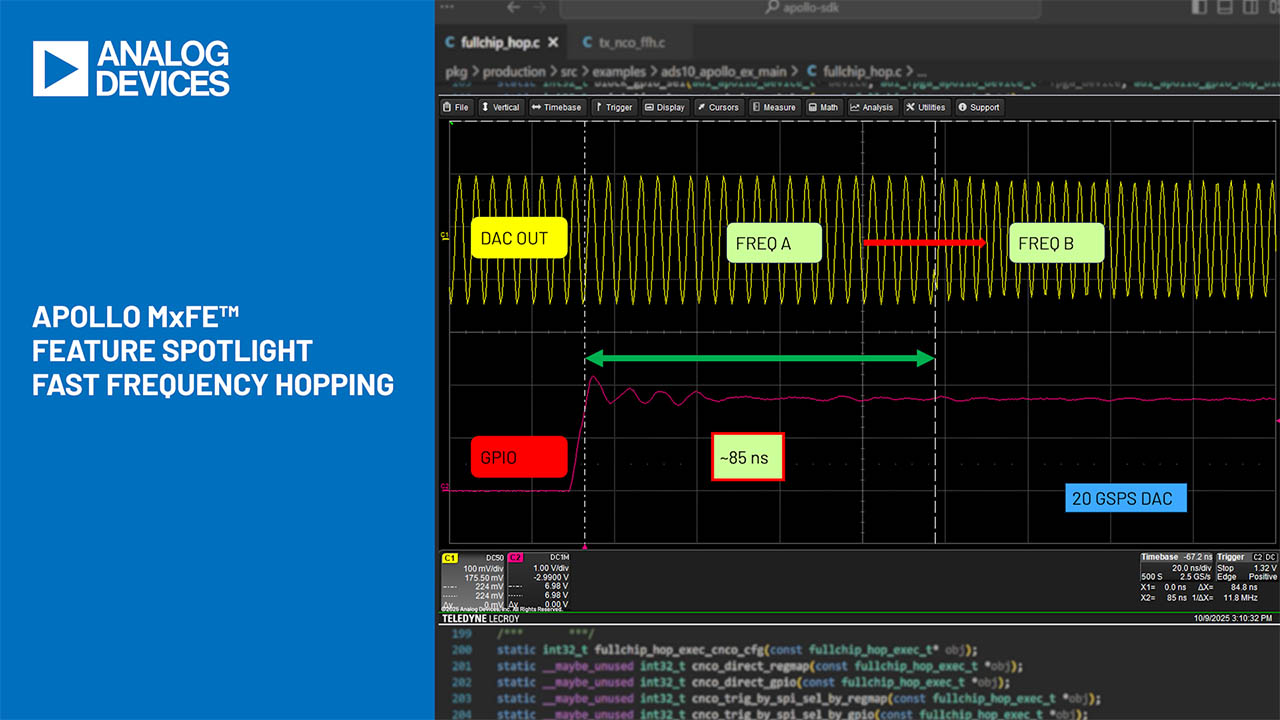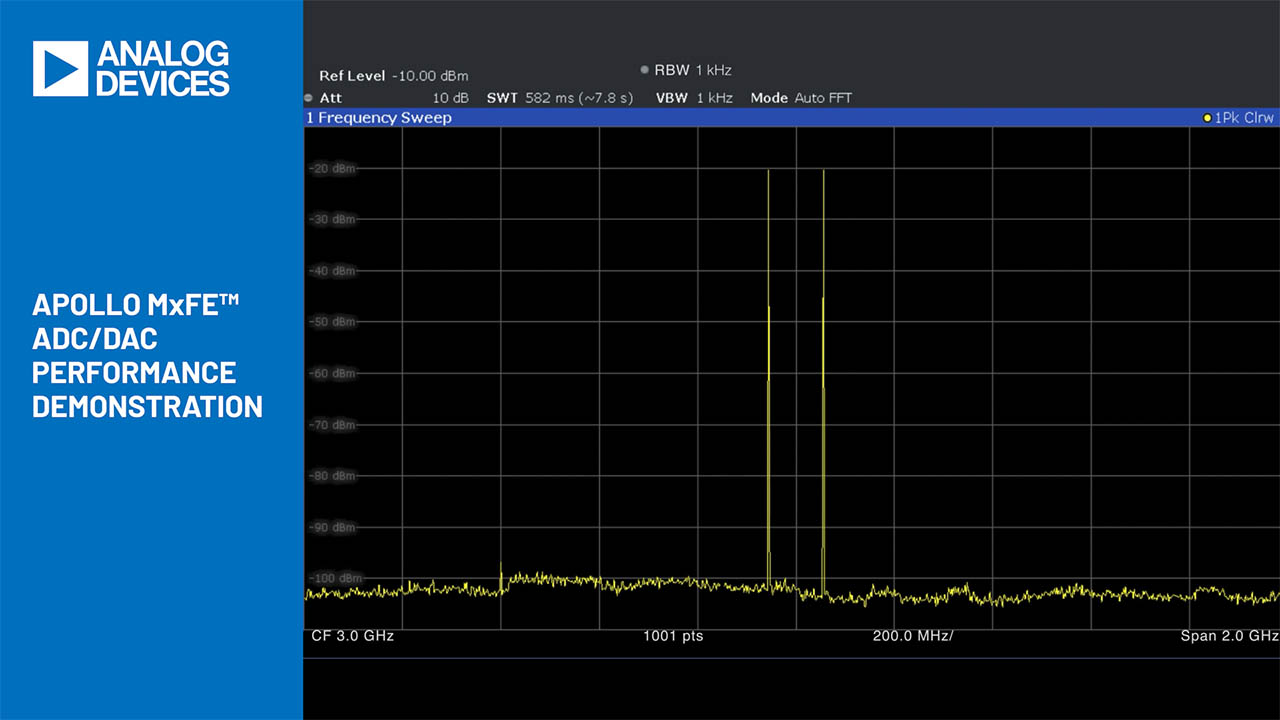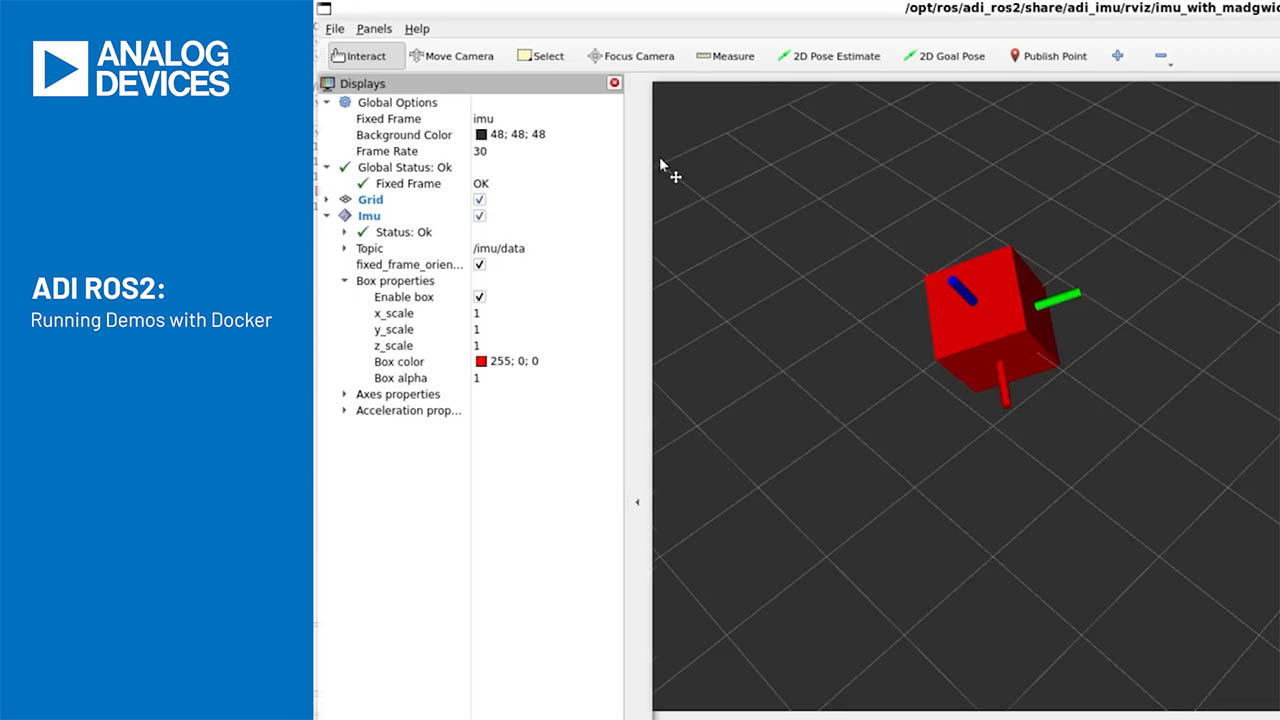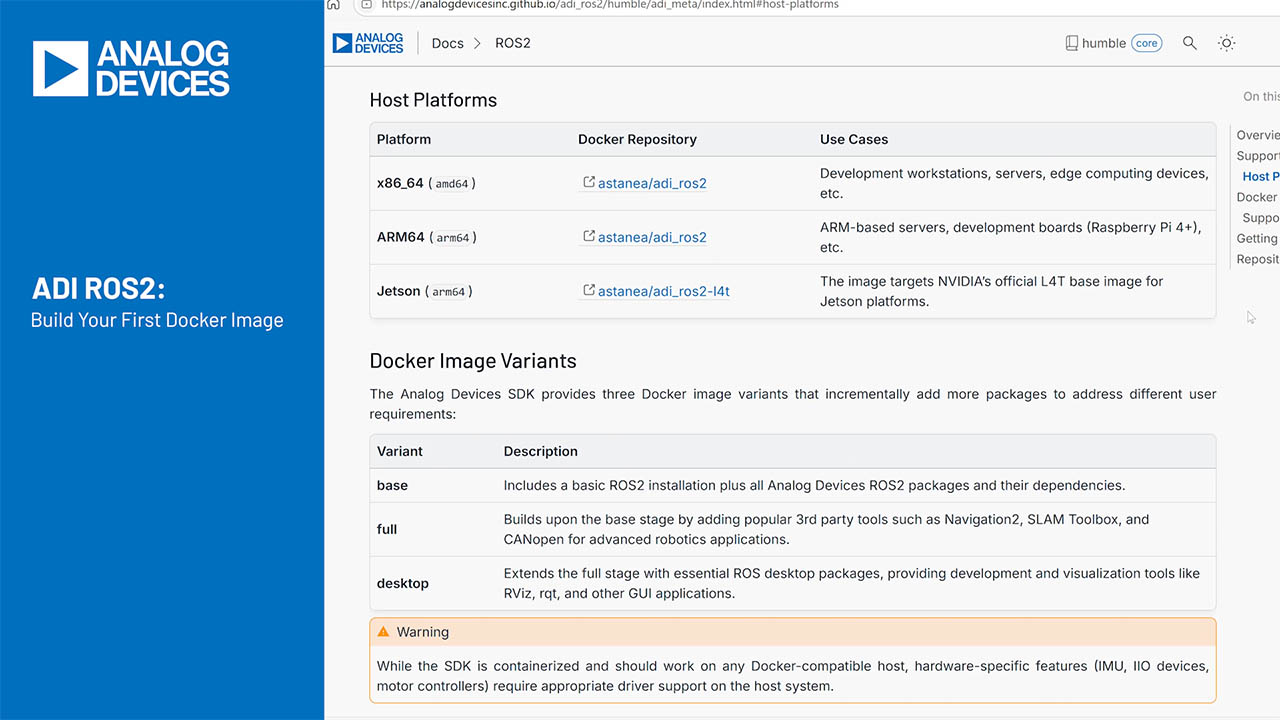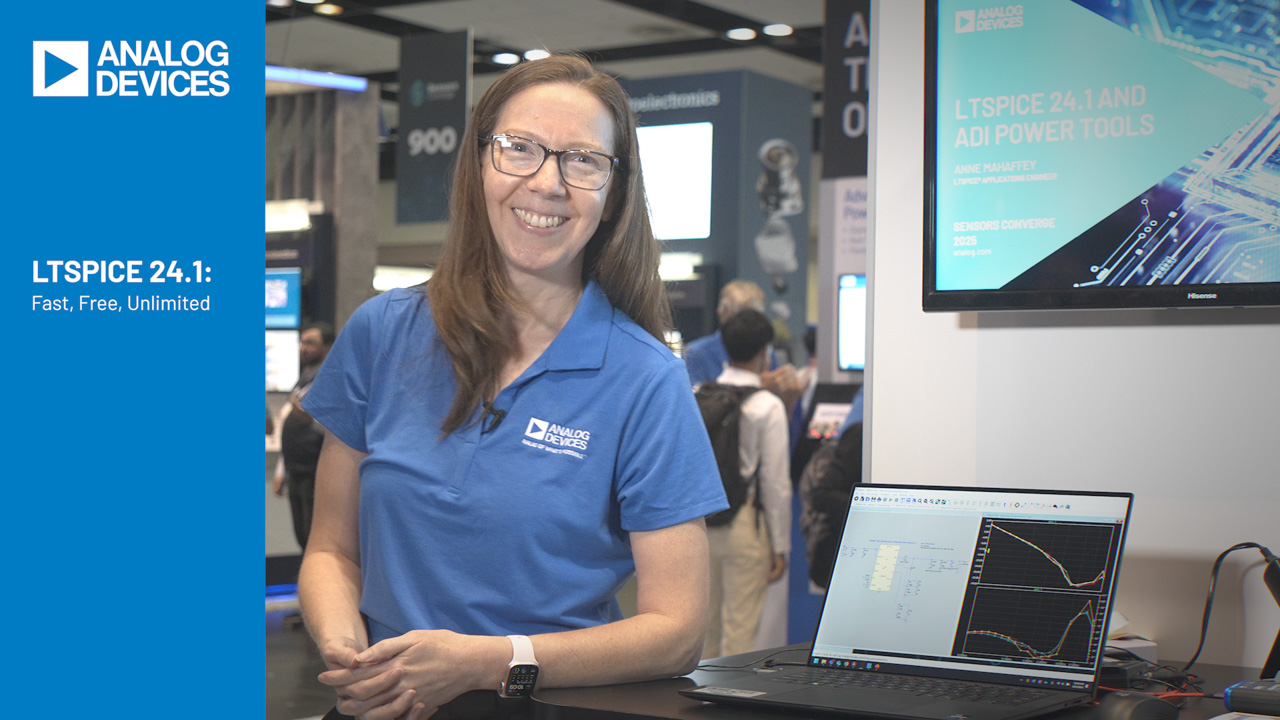- Fourth quarter revenue of $2.7 billion with continued double-digit year-over-year growth in Automotive
- Fiscal 2023 revenue of $12.3 billion driven by new records in Industrial & Automotive
- Fiscal 2023 operating cash flow of $4.8 billion and free cash flow of $3.6 billion
- Returned more than $4.6 billion to shareholders in fiscal 2023, including $3.0 billion of share repurchases and $1.7 billion of dividends
Analog Devices, Inc. (Nasdaq: ADI), a global semiconductor leader, today announced financial results for its fourth quarter and fiscal year 2023, which ended October 28, 2023.
“For the fourth quarter, ADI delivered revenue and profitability above the midpoint of our outlook, despite the difficult macroeconomic environment. For the year, 2023 was our third consecutive year of record revenue, led by the strength of our Industrial and Automotive businesses,” said Vincent Roche, CEO and Chair. “As outlined last quarter, we expect customer inventory digestion to persist into the first half of the year, a reflection of our return to normal lead times and the challenging macro landscape. Despite that backdrop, the robustness of our business model and our continued focus on execution excellence will buttress our operating margins and free cash flow through the cycle.”
Roche continued, “Long-term, the opportunities ahead for ADI remain strongly positive. Our product portfolio is designed to take advantage of numerous secular trends, our opportunity pipeline is robust and expanding, and our commitment to strategic investment in innovation, customer engagement, and supply resiliency remains undeterred. Altogether, I am extremely confident in our ability to leverage these strengths to drive shareholder value for years to come.”
Performance for the Fourth Quarter and Fiscal 2023 (PDF)
Outlook for the 14-week First Quarter of Fiscal Year 2024
For the first quarter of fiscal 2024, we are forecasting revenue of $2.5 billion, +/- $100 million, which includes the benefit of a 14th week in the quarter. At the midpoint of this revenue outlook, we expect reported operating margin of approximately 23.1%, +/- 130 bps, and adjusted operating margin of approximately 41.5%, +/- 70 bps. We are planning for reported EPS to be $0.91, +/- $0.10, and adjusted EPS to be $1.70, +/- $0.10.
Our first quarter fiscal 2024 outlook is based on current expectations and actual results may differ materially as a result of, among other things, the important factors discussed at the end of this release. These statements supersede all prior statements regarding our business outlook set forth in prior ADI news releases, and ADI disclaims any obligation to update these forward-looking statements.
The adjusted results and adjusted anticipated results above are financial measures presented on a non-GAAP basis. Reconciliations of these non-GAAP financial measures to their most directly comparable GAAP financial measures are provided in the financial tables included in this release. See also the “Non-GAAP Financial Information” section for additional information.
Dividend Payment
The ADI Board of Directors has declared a quarterly cash dividend of $0.86 per outstanding share of common stock. The dividend will be paid on December 14, 2023 to all shareholders of record at the close of business on December 4, 2023.
Conference Call Scheduled for Today, Tuesday, November 21, 2023 at 10:00 am ET
ADI will host a conference call to discuss our fourth quarter and fiscal 2023 results and short-term outlook today, beginning at 10:00 am ET. Investors may join via webcast, accessible at investor.analog.com.
Non-GAAP Financial Information
This release includes non-GAAP financial measures that are not in accordance with, nor an alternative to, U.S. generally accepted accounting principles (GAAP) and may be different from non-GAAP measures presented by other companies. In addition, these non-GAAP measures are not based on any comprehensive set of accounting rules or principles. These non-GAAP measures have material limitations in that they do not reflect all of the amounts associated with the Company’s results of operations as determined in accordance with GAAP and should not be considered in isolation from, or as a substitute for, the Company’s financial results presented in accordance with GAAP. The Company’s use of non-GAAP measures, and the underlying methodology when including or excluding certain items, is not necessarily an indication of the results of operations that may be expected in the future, or that the Company will not, in fact, record such items in future periods. You are cautioned not to place undue reliance on these non-GAAP measures. Reconciliations of these non-GAAP financial measures to their most directly comparable GAAP financial measures are provided in the financial tables included in this release.
Management uses non-GAAP measures internally to evaluate the Company’s operating performance from continuing operations against past periods and to budget and allocate resources in future periods. These non-GAAP measures also assist management in evaluating the Company’s core business and trends across different reporting periods on a consistent basis. Management also uses these non-GAAP measures as primary performance measurements when communicating with analysts and investors regarding the Company’s earnings results and outlook and believes that the presentation of these non-GAAP measures is useful to investors because it provides investors with the operating results that management uses to manage the Company and enables investors and analysts to evaluate the Company’s core business. Management also believes that free cash flow, a non-GAAP liquidity measure, is useful both internally and to investors because it provides information about the amount of cash generated after capital expenditures that is then available to repay debt obligations, make investments and fund acquisitions, and for certain other activities.
The non-GAAP financial measures referenced by ADI in this release include: adjusted gross margin, adjusted gross margin percentage, adjusted operating expenses, adjusted operating expenses percentage, adjusted operating income, adjusted operating margin, adjusted nonoperating expense (income), adjusted income before income taxes, adjusted provision for income taxes, adjusted tax rate, adjusted diluted earnings per share (EPS), free cash flow, and free cash flow revenue percentage.
Adjusted gross margin is defined as gross margin, determined in accordance with GAAP, excluding certain acquisition related expenses1, which are described further below. Adjusted gross margin percentage represents adjusted gross margin divided by revenue.
Adjusted operating expenses is defined as operating expenses, determined in accordance with GAAP, excluding: certain acquisition related expenses1, acquisition related transaction costs2, and special charges, net3, which are described further below. Adjusted operating expenses percentage represents adjusted operating expenses divided by revenue.
Adjusted operating income is defined as operating income, determined in accordance with GAAP, excluding: acquisition related expenses1, acquisition related transaction costs2, and special charges, net3, which are described further below. Adjusted operating margin represents adjusted operating income divided by revenue.
Adjusted nonoperating expense (income) is defined as nonoperating expense (income), determined in accordance with GAAP, excluding: certain acquisition related expenses1, which is described further below.
Adjusted income before income taxes is defined as income before income taxes, determined in accordance with GAAP, excluding: acquisition related expenses1, acquisition related transaction costs2, and special charges, net3, which are described further below.
Adjusted provision for income taxes is defined as provision for income taxes, determined in accordance with GAAP, excluding tax related items4, which are described further below. Adjusted tax rate represents adjusted provision for income taxes divided by adjusted income before income taxes.
Adjusted diluted EPS is defined as diluted EPS, determined in accordance with GAAP, excluding: acquisition related expenses1, acquisition related transaction costs2, special charges, net3, and tax related items4, which are described further below.
Free cash flow is defined as net cash provided by operating activities, determined in accordance with GAAP, less additions to property, plant and equipment, net. Free cash flow revenue percentage represents free cash flow divided by revenue.
1Acquisition Related Expenses: Expenses incurred as a result of current and prior period acquisitions and primarily include expenses associated with the fair value adjustments to debt, inventory, property, plant and equipment and amortization of acquisition related intangibles, which include acquired intangibles such as purchased technology and customer relationships. Expenses also include fair value adjustments associated with the replacement of share-based awards related to the Maxim Integrated Products, Inc. (Maxim) acquisition. We excluded these costs from our non-GAAP measures because they relate to specific transactions and are not reflective of our ongoing financial performance.
2Acquisition Related Transaction Costs: Costs directly related to the Maxim acquisition, including legal, accounting and other professional fees as well as integration-related costs. We excluded these costs from our non-GAAP measures because they relate to a specific transaction and are not reflective of our ongoing financial performance.
3Special Charges, net: Expenses, net, incurred as part of the integration of Maxim, in connection with facility closures, consolidation of manufacturing facilities, severance, other accelerated stock-based compensation expense and other cost reduction efforts or reorganizational initiatives. We excluded these expenses from our non-GAAP measures because apart from ongoing expense savings as a result of such items, these expenses have no direct correlation to the operation of our business in the future.
4Tax Related Items: Income tax effect of the non-GAAP items discussed above, an income tax benefit from a discrete tax item related to a federal corporate income tax relief claim, certain other income tax benefits associated with prior periods and an income tax benefit from a discrete tax item related to the consolidation of certain subsidiaries. We excluded the income tax effect of these tax related items from our non-GAAP measures because they are not associated with the tax expense on our current operating results.
4Q'23 Financials (PDF)
About Analog Devices, Inc.
Analog Devices, Inc. (NASDAQ: ADI) is a global semiconductor leader that bridges the physical and digital worlds to enable breakthroughs at the Intelligent Edge. ADI combines analog, digital, and software technologies into solutions that help drive advancements in digitized factories, mobility, and digital healthcare, combat climate change, and reliably connect humans and the world. With revenue of more than $12 billion in FY23 and approximately 26,000 people globally working alongside 125,000 global customers, ADI ensures today’s innovators stay Ahead of What’s Possible. Learn more at www.analog.com and on LinkedIn and Twitter (X).
